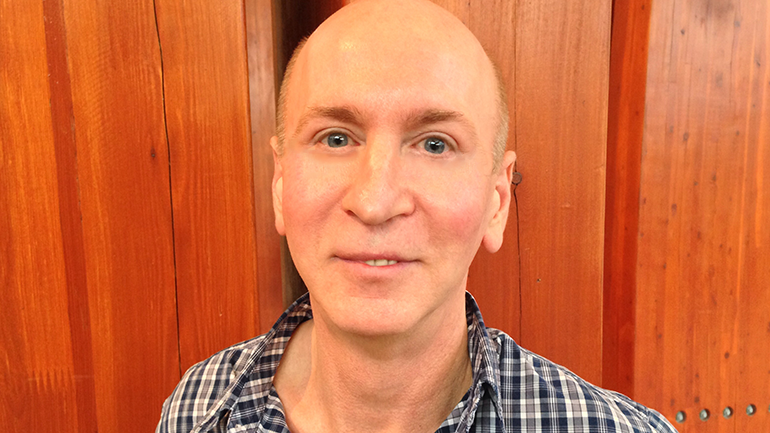
Meet Len Polak, who encourages and supports family members to be involved in the treatment and recovery of people with mental illness.
This role I’m in is very interesting and rewarding: to embed in our mental health services a family-focussed culture within a client-centred environment that is built on collaboration.
So what does that mean? I find ways to encourage the involvement of family members in the treatment and recovery process of our clients who have lived experience with mental illness, and to provide supports for families.
Our clients decide who family is. It can be anyone, whether related through blood or marriage, or a good friend, or any person they trust to include in an aspect of their treatment planning and recovery journey.
I’ve seen how involving the family can reduce a client’s visits to emergency and the need for hospitalization, stress on the family, relapse, and isolation for both the client and family, while increasing compliance with medication, attendance at appointments and programs, better management of symptoms, and periods of positive thoughts and feelings. I’ve also seen families feeling supported through the support services we’re helping create and sustain.
I’d like to share a story of one of our mental health centre clinicians (I’ll call her Jane). Jane had a client in his early 20s who was lamenting the fact his parents were expecting too much of him. They felt if he was capable of going out and doing things socially he was also capable of helping out with some of the chores at home. His mother wanted him to get a full time job and felt he should be paying rent.
Jane asked him to invite his parents to the next session. He was happy because he had the idea Jane was going to set his parents straight and advocate for him, since he was “recovering from a mental illness and not capable of meeting their expectations.”
The parents came to the session and through the course of the conversation, Jane found out her client was indeed being quite social, setting up outings. She learned both parents worked full time and had asked him to contribute to the house by making a few dinners a week. The mother wanted her son to get a full time job and the father, believing his son was “broken,” didn’t want him to work at all or do anything that would make his mental illness worse. And Jane discovered her client felt he honestly couldn’t work full time – that it would be too taxing on his recovery – but was open to working part-time, and that he had enough money to pay rent.
Despite the client’s initial displeasure with Jane after that session, in the next it was agreed on by all that the son could work and would engage with the vocational counsellor to find part-time work, would pay rent, and made some meals.
The parents were invited to attend the Family and Friends Information Group at the hospital, where they connected with others and got more insights into how people recover and the support they need at different stages of their recovery.
Reflecting on that experience, Jane believes by inviting the family to come in and talk, they helped advance her client’s recovery by at least a year. If she had not had their input, everyone would have lost out, especially her client on grasping and guiding his full potential even as he recovered.
For more information or find out how to get support, read about Fraser Health's family support services.
